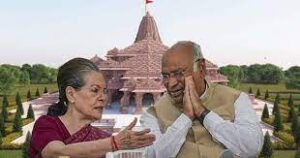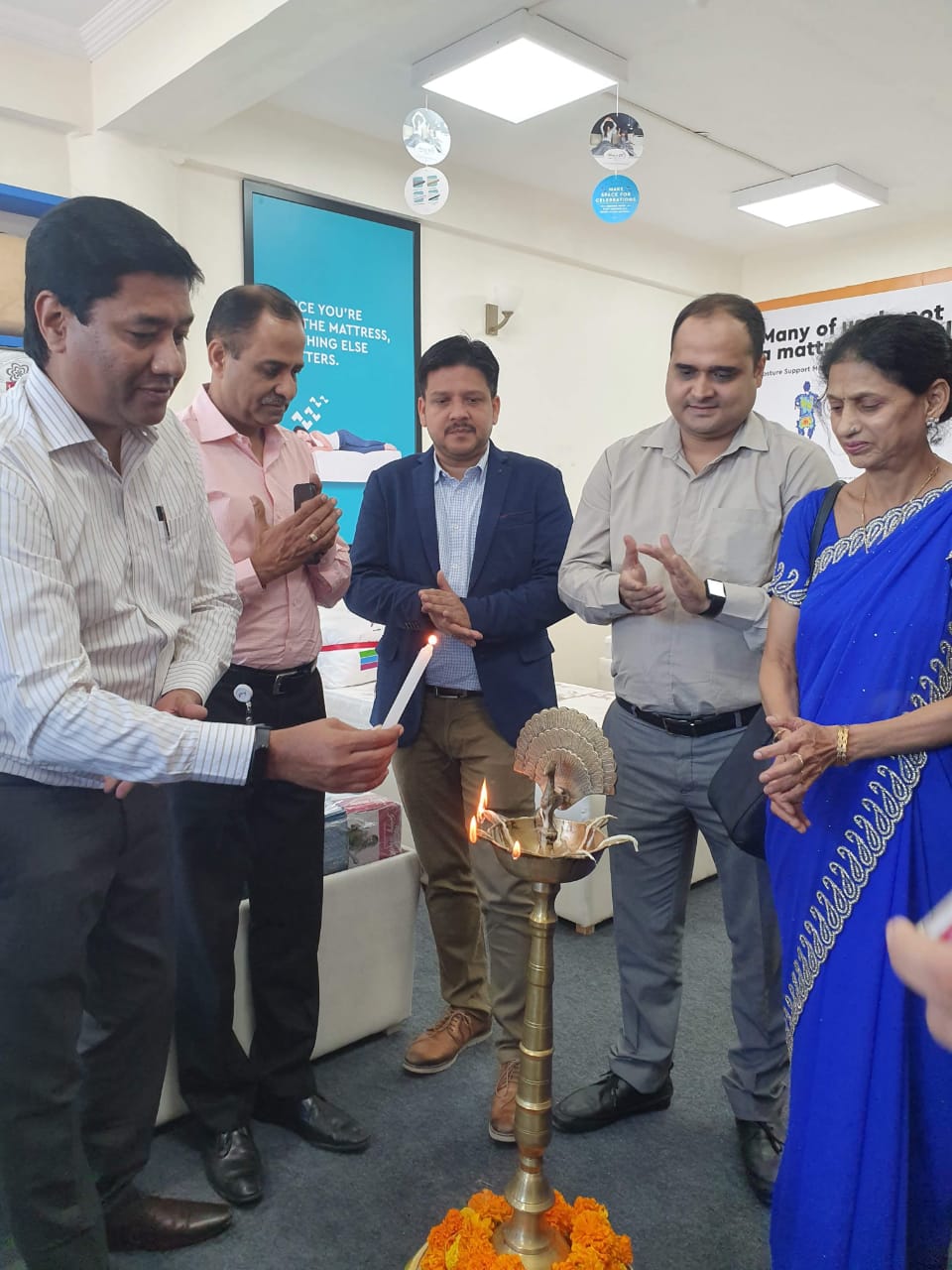Featured
Full Prahlad-Nrsimha Lila
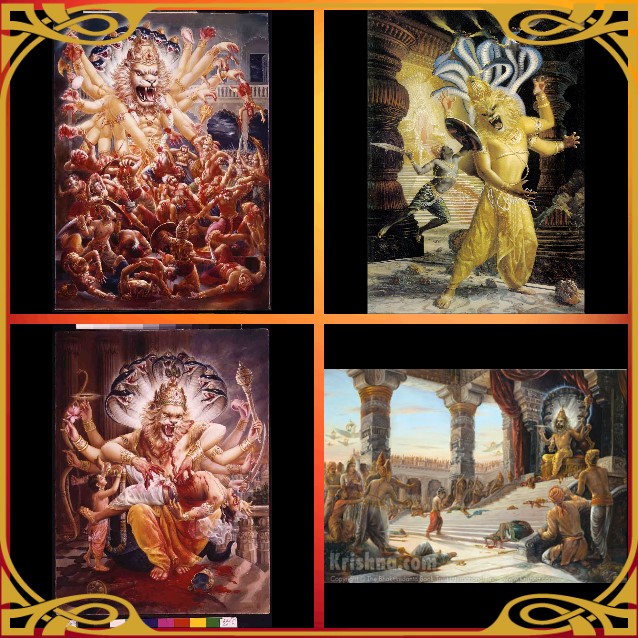
The second question raised by Parikshit Maharaja concerns how shishupala, although inimical toward Krshna from his very childhood and always blaspheming Krshna, attained salvation in oneness when Krshna killed him. shukadeva Gosvami explains that because of their offenses at the feet of devotees, two attendants of the Lord in Vaikuntha named Jaya and Vijaya became Hiranyakashipu and Hiranyaksha in Satya-yuga, Ravana and Kumbhakarna in the next yuga, Treta-yuga, and shishupala and Dantavakra at the end of Dvapara-yuga. Because of their fruitive acts, Jaya and Vijaya agreed to become the Lord’s enemies, and when killed in that mentality, they attained salvation in oneness. Thus even if one thinks of the Supreme Personality of Godhead in envy, he attains salvation. What then is to be said of devotees who always engage in the Lord’s service with love and faith?
after the annihilation of Hiranyaksha, Hiranyaksha’s sons and his brother Hiranyakashipu were very much aggrieved. Hiranyakashipu reacted very sinfully by trying to diminish the religious activities of people in general. However, he instructed his nephews about a history just to diminish their aggrievement.
When the Supreme Personality of Godhead appeared as the boar and killed Hiranyakashipu’s brother Hiranyaksha, Hiranyakashipu was very much aggrieved. In anger, he accused the Supreme Personality of Godhead of being partial to His devotees and derided the Lord’s appearance as Varaha to kill his brother. He began to agitate all the demons and Rakshasas and disturb the ritualistic ceremonies of the peaceful sages and other inhabitants of earth. For want of the performance of yajïa, sacrifice, the demigods began wandering unseen on earth.
After finishing the ritualistic funeral ceremonies of his brother, Hiranyakashipu began speaking to his nephews, quoting from the shastras about the truth of life. To pacify them, he spoke as follows: “My dear nephews, for heroes to die before the enemy is glorious. According to their different fruitive activities, living entities come together within this material world and are again separated by the laws of nature. We should always know, however, that the spirit soul, which is different from the body, is eternal, unadjustable, pure, all-pervading and aware of everything. When bound by the material energy, the soul takes birth in higher or lower species of life according to varying association and in this way receives various types of bodies in which to suffer or enjoy. One’s affliction by the conditions of material existence is the cause of happiness and distress; there are no other causes, and one should not be aggrieved upon seeing the superficial actions of karma.”
Hiranyakashipu then related a historical incident concerning a King Suyajïa who resided in the country named Ushinara. When the King was killed, his queens, overwhelmed with grief, received instructions, which Hiranyakashipu quoted to his nephews. Hiranyakashipu related an account of a kuliìga bird pierced by the arrow of a hunter while lamenting for his wife, who had also been shot by the same hunter. By narrating these stories, Hiranyakashipu pacified his nephews and other relatives and relieved them of lamentation. Thus having been pacified, Diti and Rushabhanu, Hiranyakashipu’s mother and sister-in-law, engaged their minds in spiritual understanding.
Hiranyakashipu performed a severe type of austerity for material benefit, thus causing great distress throughout the universe. Even Lord Brahma, the chief personality within this universe, became somewhat disturbed and personally went to see why Hiranyakashipu was engaged in such a severe austerity.
Hiranyakashipu wanted to become immortal. He wanted not to be conquered by anyone, not to be attacked by old age and disease, and not to be harassed by any opponent. Thus he wanted to become the absolute ruler of the entire universe. With this desire, he entered the valley of Mandara Mountain and began practicing a severe type of austerity and meditation. Seeing Hiranyakashipu engaged in this austerity, the demigods returned to their respective homes, but while Hiranyakashipu was thus engaged, a kind of fire began blazing from his head, disturbing the entire universe and its inhabitants, including the birds, beasts and demigods. When all the higher and lower planets became too hot to live on, the demigods, being disturbed, left their abodes in the higher planets and went to see Lord Brahma, praying to him that he curtail this unnecessary heat. The demigods disclosed to Lord Brahma Hiranyakashipu’s ambition to become immortal, overcoming his short duration of life, and to be the master of all the planetary systems, even Dhruvaloka.
Upon hearing about the purpose of Hiranyakashipu’s austere meditation, Lord Brahma, accompanied by the great sage Bhrgu and great personalities like Daksha, went to see Hiranyakashipu. He then sprinkled water from his kamanòalu, a type of waterpot, upon Hiranyakashipu’s head.
Hiranyakashipu, the King of the Daityas, bowed down before Lord Brahma, the creator of this universe, offering respectful obeisances again and again and offering prayers. When Lord Brahma agreed to give him benedictions, he prayed not be killed by any living entity, not to be killed in any place, covered or uncovered, not to die in the daytime or at night, not to be killed by any weapon, on land or in the air, and not to be killed by any human being, animal, demigod or any other entity, living or nonliving. He further prayed for supremacy over the entire universe and requested the eight yogic perfections, such as anima and laghima.
Hiranyakashipu obtained power from Lord Brahma and misused it by harassing all the living entities within this universe.
By severe austerities, Hiranyakashipu satisfied Lord Brahma and obtained the benedictions he desired. After he received these benedictions, his body, which had been almost entirely consumed, was revived with full beauty and a luster like gold. Nonetheless, he continued to be envious of Lord Vishnu, unable to forget Lord Vishnu’s having killed his brother. Hiranyakashipu conquered everyone in the ten directions and the three worlds and brought all living entities, both demigods and asuras, under his control. Becoming the master of all places, including the residence of Indra, whom he had driven out, he began enjoying life in great luxury and thus became mad. All the demigods but Lord Vishnu, Lord Brahma and Lord shiva came under his control and began serving him, but despite all his material power he was dissatisfied because he was always puffed up, proud of transgressing the Vedic regulations. All the brahmanas were dissatisfied with him, and they cursed him with determination. Eventually, all the living entities within the universe, represented by the demigods and sages, prayed to the Supreme Lord for relief from Hiranyakashipu’s rule.
Lord Vishnu informed the demigods that they and the other living entities would be saved from the fearful conditions created by Hiranyakashipu. Since Hiranyakashipu was the oppressor of all the demigods, the followers of the Vedas, the cows, the brahmanas and the religious, saintly persons, and since he was envious of the Supreme Lord, he would naturally be killed very soon. Hiranyakashipu’s last exploit would be to torment his own son Prahlada, who was a maha-bhagavata, an exalted Vaishnava. Then his life would end. When the demigods were thus reassured by the Supreme Personality of Godhead, everyone was satisfied, knowing that the miseries inflicted upon them by Hiranyakashipu would come to an end.
Finally, Narada Muni describes the characteristics of Prahlada Maharaja, the son of Hiranyakashipu, and describes how his father envied his own qualified son. In this way the chapter ends.
Prahlada Maharaja did not carry out the orders of his teachers, for he was always engaged in worshiping Lord Vishnu. As described in this chapter, Hiranyakashipu tried to kill Prahlada Maharaja, even by having a snake bite him and by putting him under the feet of elephants, yet he was unsuccessful.
Hiranyakashipu’s spiritual master, shukracarya, had two sons named shanòa and Amarka, to whom Prahlada Maharaja was entrusted for education. Although the teachers tried to educate the boy Prahlada in politics, economics and other material activities, he did not care for their instructions. Instead, he continued to be a pure devotee. Prahlada Maharaja never liked the idea of discriminating between one’s friends and enemies. Because he was spiritually inclined, he was equal toward everyone.
Once upon a time, Hiranyakashipu inquired from his son what the best thing was that he had learned from his teachers. Prahlada Maharaja replied that a man engrossed in the material consciousness of duality, thinking, “This is mine, and that belongs to my enemy,” should give up his householder life and go to the forest to worship the Supreme Lord.
When Hiranyakashipu heard from his son about devotional service, he decided that this small boy had been polluted by some friend in school. Thus he advised the teachers to take care of the boy so that he would not become a Krshna conscious devotee. However, when the teachers inquired from Prahlada Maharaja why he was going against their teachings, Prahlada Maharaja taught the teachers that the mentality of ownership is false and that he was therefore trying to become an unalloyed devotee of Lord Vishnu. The teachers, being very angry at this answer, chastised and threatened the boy with many fearful conditions. They taught him to the best of their ability and then brought him before his father.
Hiranyakashipu affectionately took his son Prahlada on his lap and then inquired from him what the best thing was that he had learned from his teachers. As usual, Prahlada Maharaja began praising the nine processes of devotional service, such as shravanam and kirtanam. Thus the King of the demons, Hiranyakashipu, being extremely angry, chastised the teachers, shanòa and Amarka, for having wrongly trained Prahlada Maharaja. The so-called teachers informed the King that Prahlada Maharaja was automatically a devotee and did not listen to their instructions. When they proved themselves innocent, Hiranyakashipu inquired from Prahlada where he had learned vishnu-bhakti. Prahlada Maharaja replied that those who are attached to family life do not develop Krshna consciousness, either personally or collectively. Instead, they suffer repeated birth and death in this material world and continue simply chewing the chewed. Prahlada explained that the duty of every man is to take shelter of a pure devotee and thus become eligible to understand Krshna consciousness.
Enraged at this answer, Hiranyakashipu threw Prahlada Maharaja from his lap. Since Prahlada was so treacherous that he had become a devotee of Vishnu, who had killed his uncle Hiranyaksha, Hiranyakashipu asked his assistants to kill him. The assistants of Hiranyakashipu struck Prahlada with sharp weapons, threw him under the feet of elephants, subjected him to hellish conditions, threw him from the peak of a mountain and tried to kill him in thousands of other ways, but they were unsuccessful. Hiranyakashipu therefore became increasingly afraid of his son Prahlada Maharaja and arrested him. The sons of Hiranyakashipu’s spiritual master, shukracarya, began teaching Prahlada in their own way, but Prahlada Maharaja did not accept their instructions. While the teachers were absent from the classroom, Prahlada Maharaja began to preach Krshna consciousness in the school, and by his instructions all his class friends, the sons of the demons, became devotees like him.
In speaking to his friends, who were all sons of demons, Prahlada Maharaja stressed that every living entity, especially in human society, must be interested in spiritual realization from the very beginning of life. When human beings are children, they should be taught that the Supreme Personality of Godhead is the worshipable Deity for everyone. One should not be very much interested in material enjoyment; instead, one should be satisfied with whatever material profits are easily obtainable, and because the duration of one’s life is very short, one should utilize every moment for spiritual advancement. One may wrongly think, “In the beginning of our lives let us enjoy material facilities, and in old age we may become Krshna conscious.” Such materialistic thoughts are always useless because in old age one cannot be trained in the spiritual way of life. Therefore, from the very beginning of life, one should engage in devotional service (shravanam kirtanam vishnoù [SB 7.5.23]). This is the duty of all living entities. Material education is infected by the three modes of nature, but spiritual education, for which there is a great need in human society, is transcendental. Prahlada Maharaja disclosed the secret of how he had received instructions from Narada Muni. By accepting the lotus feet of Prahlada Maharaja, who is in the parampara succession, one will be able to understand the mode of spiritual life. In accepting this mode of activity, there is no need for material qualifications.
After Prahlada Maharaja’s class friends had listened to Prahlada Maharaja, they inquired how he had become so learned and advanced.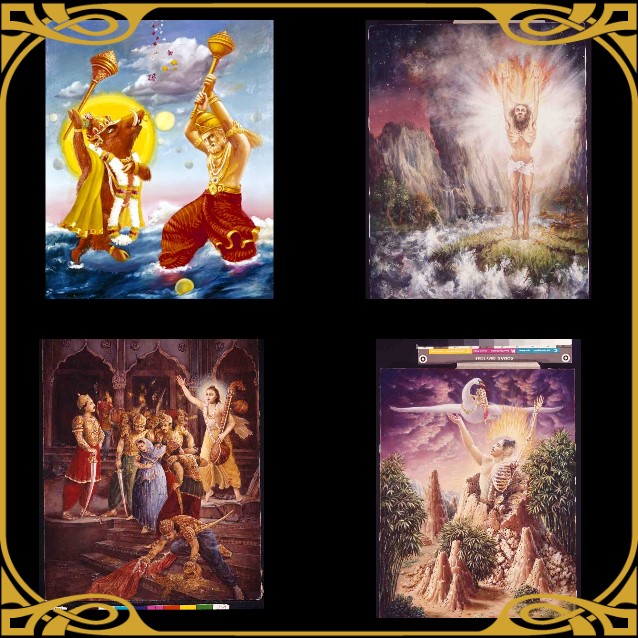
Prahlada Maharaja states how, within the womb of his mother, he had heard from the mouth of Narada Muni, who had instructed him in bhagavata-dharma.
When Hiranyakashipu left his kingdom and went to the mountain known as Mandaracala to execute severe austerities, all the demons scattered. Hiranyakashipu’s wife, Kayadhu, was pregnant at that time, and the demigods, mistakenly thinking that she carried another demon in her womb, arrested her. Their plan was that as soon as the child took birth they would kill him. While they were taking Kayadhu to the heavenly planets, they met Narada Muni, who stopped them from taking her away and took her to his ashrama until Hiranyakashipu’s return. In Narada Muni’s ashrama, Kayadhu prayed for the protection of the baby in her womb, and Narada Muni reassured her and gave her instructions on spiritual knowledge. Taking advantage of those instructions, Prahlada Maharaja, although a small baby within the womb, listened very carefully. The spirit soul is always apart from the material body. There is no change in the spiritual form of the living entity. Any person above the bodily conception of life is pure and can receive transcendental knowledge. This transcendental knowledge is devotional service, and Prahlada Maharaja, while living in the womb of his mother, received instructions in devotional service from Narada Muni. Any person engaged in the service of the Lord through the instructions of a bona fide spiritual master is immediately liberated, and being free from the clutches of maya, he is relieved of all ignorance and material desires. The duty of everyone is to take shelter of the Supreme Lord and thus become free from all material desires. Regardless of the material condition in which one is situated, one can achieve this perfection. Devotional service is not dependent on the material activities of austerity, penance, mystic yoga or piety. Even without such assets, one can achieve devotional service through the mercy of a pure devotee. 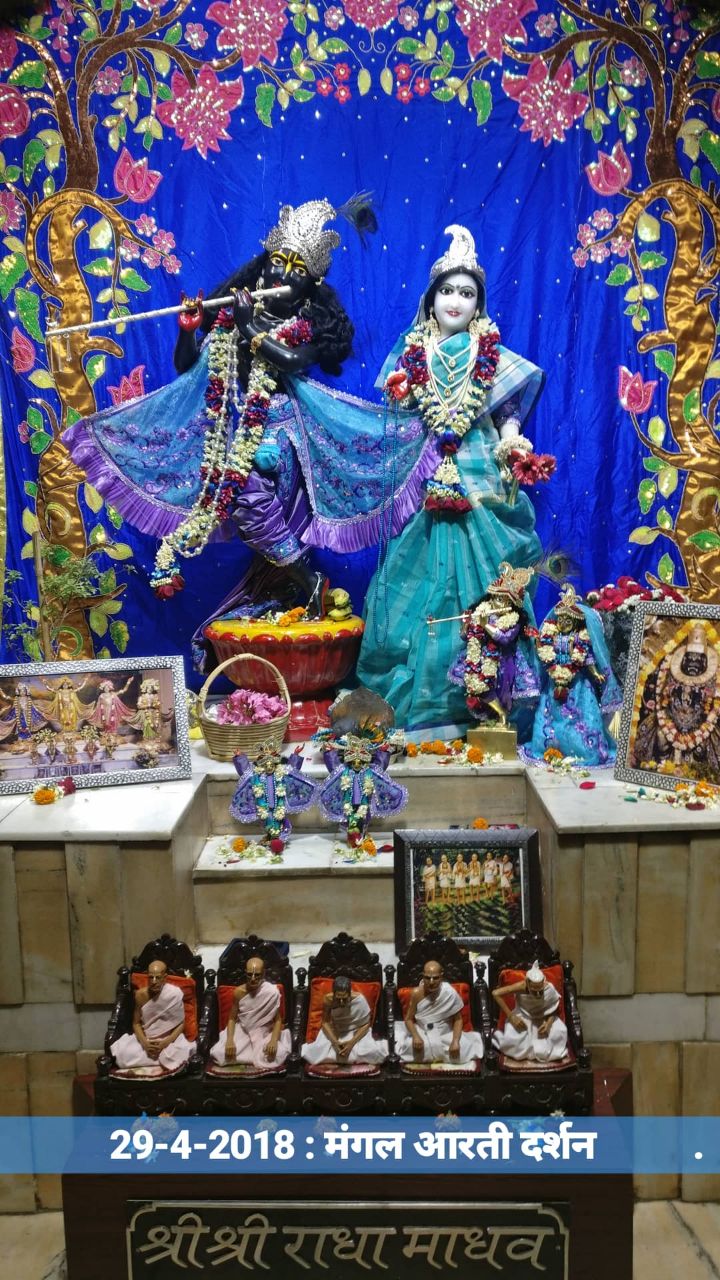
Hiranyakashipu was ready to kill his own son Prahlada Maharaja, but the Supreme Personality of Godhead appeared in front of the demon as shri Nrkeshari, half lion and half man, and killed him.
Following the instructions of Prahlada Maharaja, all the sons of the demons became attached to Lord Vishnu, the Supreme Personality of Godhead. When this attachment became pronounced, their teachers, shanòa and Amarka, were very much afraid that the boys would become more and more devoted to the Lord. In a helpless condition, they approached Hiranyakashipu and described in detail the effect of Prahlada’s preaching. After hearing of this, Hiranyakashipu decided to kill his son Prahlada. Hiranyakashipu was so angry that Prahlada Maharaja fell down at his feet and said many things just to pacify him, but he was unsuccessful in satisfying his demoniac father. Hiranyakashipu, as a typical demon, began to advertise himself as being greater than the Supreme Personality of Godhead, but Prahlada Maharaja challenged him, saying that Hiranyakashipu was not God, and began to glorify the Supreme Personality of Godhead, declaring that the Lord is all-pervading, that everything is under Him, and that no one is equal to or greater than Him. Thus he requested his father to be submissive to the omnipotent Supreme Lord.
The more Prahlada Maharaja glorified the Supreme Personality of Godhead, the more angry and agitated the demon became. Hiranyakashipu asked his Vaishnava son whether his God existed within the columns of the palace, and Prahlada Maharaja immediately accepted that since the Lord is present everywhere, He was also present within the columns. When Hiranyakashipu heard this philosophy from his young son, he derided the boy’s statement as just the talk of a child and forcefully struck the pillar with his fist.
As soon as Hiranyakashipu struck the column, there issued forth a tumultuous sound. At first Hiranyakashipu, the King of the demons, could not see anything but the pillar, but to substantiate Prahlada’s statements, the Lord came out of the pillar in His wonderful incarnation as Narasimha, half lion and half man. Hiranyakashipu could immediately understand that the extraordinarily wonderful form of the Lord was surely meant for his death, and thus he prepared to fight with the form of half lion and half man. The Lord performed His pastimes by fighting with the demon for some time, and in the evening, on the border between day and night, the Lord captured the demon, threw him on His lap, and killed him by piercing his abdomen with His nails. The Lord not only killed Hiranyakashipu, the King of the demons, but also killed many of his followers. When there was no one else to fight, the Lord, roaring with anger, sat down on Hiranyakashipu’s throne.
The entire universe was thus relieved of the rule of Hiranyakashipu, and everyone was 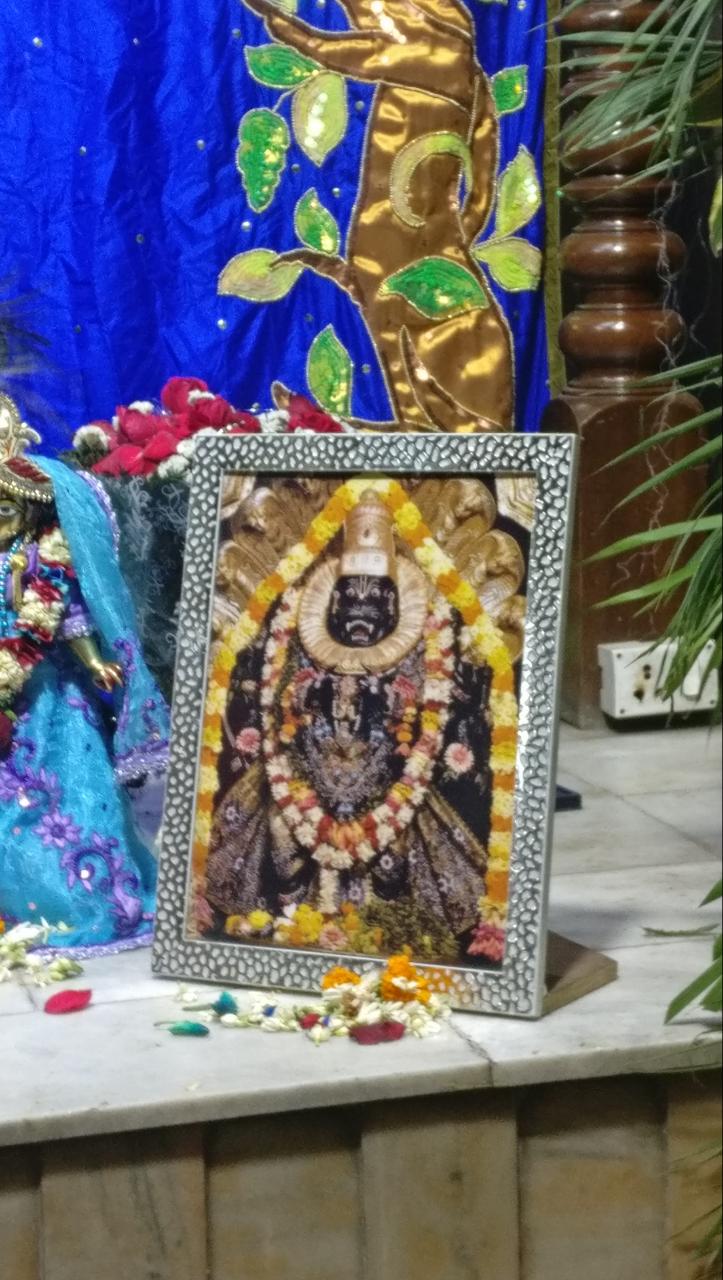 jubilant in transcendental bliss. Then all the demigods, headed by Lord Brahma, approached the Lord. These included the great saintly persons, the Pitas, the Siddhas, the Vidyadharas, the Nagas, the Manus, the prajapatis, the Gandharvas, the Caranas, the Yakshas, the Kimpurushas, the Vaitalikas, the Kinnaras and also many other varieties of beings in human form. All of them stood not far from the Supreme Personality of Godhead and began offering their prayers unto the Lord, whose spiritual effulgence was brilliant as He sat on the throne.
jubilant in transcendental bliss. Then all the demigods, headed by Lord Brahma, approached the Lord. These included the great saintly persons, the Pitas, the Siddhas, the Vidyadharas, the Nagas, the Manus, the prajapatis, the Gandharvas, the Caranas, the Yakshas, the Kimpurushas, the Vaitalikas, the Kinnaras and also many other varieties of beings in human form. All of them stood not far from the Supreme Personality of Godhead and began offering their prayers unto the Lord, whose spiritual effulgence was brilliant as He sat on the throne.
Prahlada Maharaja, following the order of Lord Brahma, pacified the Lord when the Lord was extremely angry after having killed Hiranyakashipu.
After Hiranyakashipu was killed, the Lord continued to be very angry, and the demigods, headed by Lord Brahma, could not pacify Him. Even mother Lakshmi, the goddess of fortune, the constant companion of Narayana, could not dare come before Lord Nrsimhadeva. Then Lord Brahma asked Prahlada Maharaja to go forward and pacify the Lord’s anger. Prahlada Maharaja, being confident of the affection of his master, Lord Nrsimhadeva, was not afraid at all. He very gravely appeared before the Lord’s lotus feet and offered Him respectful obeisances. Lord Nrsimhadeva, being very much affectionate toward Prahlada Maharaja, put His hand on Prahlada’s head, and because of being personally touched by the Lord, Prahlada Maharaja immediately achieved brahma-jïana, spiritual knowledge. Thus he offered his prayers to the Lord in full spiritual knowledge and full devotional ecstasy. The instructions given by Prahlada Maharaja in the form of his prayers are as follows.
Prahlada said, “I am not proud of being able to offer prayers to the Supreme Personality of Godhead. I simply take shelter of the mercy of the Lord, for without devotion one cannot appease Him. One cannot please the Supreme Personality of Godhead simply by dint of high parentage or great opulence, learning, austerity, penance or mystic power. Indeed, these are never pleasing to the Supreme Lord, for nothing can please Him but pure devotional service. Even if a nondevotee is a brahmana qualified with the twelve brahminical symptoms, he cannot be very dear to the Lord, whereas if a person born in a family of dog-eaters is a devotee, the Lord can accept his prayers. The Lord does not need anyone’s prayers, but if a devotee offers his prayers to the Lord, the devotee benefits greatly. Ignorant persons born in low families, therefore, can sincerely offer heartfelt prayers to the Lord, and the Lord will accept them. As soon as one offers his prayers to the Lord, he is immediately situated on the Brahman platform.
Lord Nrsimhadeva appeared for the benefit of all human society, not only for Prahlada’s personal benefit. The fierce form of Lord Nrsimhadeva may appear most awful to a nondevotee, but to the devotee the Lord is always affectionate as He is in other forms. Conditioned life in the material world is actually extremely fearful; indeed, a devotee is not afraid of anything else. Fear of material existence is due to false ego. Therefore the ultimate goal of life for every living entity is to attain the position of being servant of the servant of the Lord [Cc. Madhya 13.80]. The miserable condition of the living entities in the material world can be remedied only by the mercy of the Lord. Although there are so-called material protectors like Lord Brahma and the other demigods, or even one’s own father, they are unable to do anything if one is neglected by the Supreme Personality of Godhead. However, one who has fully taken shelter of the Lord’s lotus feet can be saved from the onslaught of material nature. Therefore every living entity should be unattracted by material so-called happiness and should take shelter of the Lord by all means. That is the mission of human life. To be attracted by sense gratification is simply foolish. Whether one is a devotee of the Lord or is a nondevotee does not depend upon one’s birth in a high or low family. Even Lord Brahma and the goddess of fortune cannot achieve the full favor of the Lord, whereas a devotee can very easily attain such devotional service. The Lord’s mercy is bestowed equally upon everyone, regardless of whether one is high or low. Because Prahlada Maharaja was blessed by Narada Muni, Prahlada became a great devotee. The Lord always saves the devotee from impersonalists and voidists. The Lord is present in everyone’s heart as the Supersoul to give the living being protection and all benefits. Thus the Lord acts sometimes as the killer and sometimes as the protector. One should not accuse the Lord for any discrepancies. It is His plan that we see varieties of life within this material world. All of them are ultimately His mercy.
Although the entire cosmic manifestation is nondifferent, the material world is nonetheless different from the spiritual world. Only by the mercy of the Supreme Lord can one understand how the wonderful material nature acts. For example, although Lord Brahma appeared from the lotus seat that had grown from the abdomen of Garbhodakashayi Vishnu, he could not understand what to do after his appearance. He was attacked by two demons, Madhu and Kaitabha, who took away Vedic knowledge, but the Lord killed them and entrusted to Lord Brahma the Vedic knowledge. Thus the Lord appears in every millennium in the societies of demigods, human beings, animals, saints and aquatics. All such incarnations are meant to protect the devotees and kill the demons, but this killing and protecting does not reflect any sense of partiality on the part of the Supreme Lord. The conditioned soul is always attracted by the external energy. Therefore he is subjected to lust and greed, and he suffers under the conditions of material nature. The Lord’s causeless mercy toward His devotee is the only means by which to get out of material existence. Anyone engaged in glorifying the Lord’s activities is always unafraid of this material world, whereas one who cannot glorify the Lord in that way is subjected to all lamentation.
Those interested in silently worshiping the Lord in solitary places may be eligible for liberation themselves, but a pure devotee is always aggrieved to see others suffering. Therefore, not caring for his own liberation, he always engages in preaching by glorifying the Lord. Prahlada Maharaja, therefore, had tried to deliver his class friends by preaching and had never remained silent. Although being silent, observing austerities and penances, learning the Vedic literature, undergoing ritualistic ceremonies, living in a solitary place and performing japa and transcendental meditation are approved means of liberation, they are meant for nondevotees or for cheaters who want to live at the expense of others. A pure devotee, however, being freed from all such deceptive activities, is able to see the Lord face to face.
The atomic theory of the composition of the cosmic manifestation is not factual. The Lord is the cause of everything, and therefore He is the cause of this creation. One should therefore always engage in devotional service by offering respectful obeisances to the Lord, offering prayers, working for the Lord, worshiping the Lord in the temple, always remembering the Lord and always hearing about His transcendental activities. Without these six kinds of activity, one cannot attain to devotional service.
Prahlada Maharaja thus offered his prayers to the Supreme Lord, begging His mercy at every step. Lord Nrsimhadeva was pacified by Prahlada Maharaja’s prayers and wanted to give him benedictions by which Prahlada could procure all kinds of material facilities. Prahlada Maharaja, however, was not misled by material facilities. Rather, he wanted to remain always a servant of the servant of the Lord [Cc. Madhya 13.80].
the Supreme Personality of Godhead Nrsimhadeva disappeared, after pleasing Prahlada Maharaja. It also describes a benediction given by Lord shiva.
Lord Nrsimhadeva wanted to bestow benedictions upon Prahlada Maharaja, one after another, but Prahlada Maharaja, thinking them impediments on the path of spiritual progress, did not accept any of them. Instead, he fully surrendered at the Lord’s lotus feet. He said: “If anyone engaged in the devotional service of the Lord prays for personal sense gratification, he cannot be called a pure devotee or even a devotee. He may be called only a merchant engaged in the business of give and take. Similarly, a master who wants to please his servant after taking service from him is also not a real master.” Prahlada Maharaja, therefore, did not ask anything from the Supreme Personality of Godhead. Rather, he said that if the Lord wanted to give him a benediction, he wanted the Lord to assure him that he would never be induced to take any benedictions for the sake of material desires. Exchanges of devotional service for lusty desires are always very prominent. As soon as lusty desires awaken, one’s senses, mind, life, soul, religious principles, patience, intelligence, shyness, beauty, strength, memory and truthfulness are all vanquished. One can render unalloyed devotional service only when there are no material desires in one’s mind.
The Supreme Personality of Godhead was greatly pleased with Prahlada Maharaja for his unalloyed devotion, yet the Lord provided him one material benediction-that he would be perfectly happy in this world and live his next life in Vaikuntha. The Lord gave him the benediction that he would be the king of this material world until the end of the manvantara millennium and that although in this material world, he would have the facility to hear the glories of the Lord and depend fully on the Lord, performing service to Him in uncontaminated bhakti-yoga. The Lord advised Prahlada to perform sacrifices through bhakti-yoga, for this is the duty of a king.
Prahlada Maharaja accepted whatever the Lord had offered him, and he prayed for the Lord to deliver his father. In response to this prayer, the Lord assured him that in the family of such a pure devotee as he, not only the devotee’s father but his forefathers for twenty-one generations are liberated. The Lord also asked Prahlada to perform the ritualistic ceremonies appropriate after his father’s death.
Then Lord Brahma, who was also present, offered many prayers to the Lord, expressing his obligation to the Lord for having offered benedictions to Prahlada Maharaja. The Lord advised Lord Brahma not to offer benedictions to asuras as he had to Hiranyakashipu, for such benedictions indulge them. Then Lord Nrsimhadeva disappeared. On that day, Prahlada Maharaja was installed on the throne of the world by Lord Brahma and shukracarya.
Thus Narada Muni described the character of Prahlada Maharaja for Yudhishthira Maharaja, and he further described the killing of Ravana by Lord Ramacandra and the killing of shishupala and Dantavakra in Dvapara-yuga. shishupala, of course, had merged into the existence of the Lord and thus achieved sayujya-mukti. Narada Muni praised Yudhishthira Maharaja because the Supreme Lord, Krshna, was the greatest well-wisher and friend of the Panòavas and almost always stayed in their house. Thus the fortune of the Panòavas was greater than that of Prahlada Maharaja.
Later, Narada Muni described how the demon Maya Danava constructed Tripura for the demons, who became very powerful and defeated the demigods. Because of this defeat, Lord Rudra, shiva, dismantled Tripura; thus he became famous as Tripurari. For this, Rudra is very much appreciated and worshiped by the demigods.
courtesy From Srila Prabhupada Books
Ayodhya
अगले 48 घंटों में गिरेगा दो से तीन डिग्री पारा, उत्तर भारत में धूप के बाद भी चलेगी शीतलहर
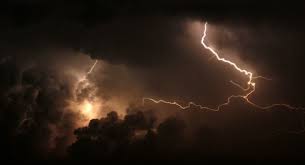
अगले 48 घंटों में गिरेगा दो से तीन डिग्री पारा, उत्तर भारत में धूप के बाद भी चलेगी शीतलहर
मौसम विभाग के निदेशक सुरेंद्र पाल कहते हैं कि उत्तर भारत के कुछ हिस्सों में अभी शीत लहर की आशंका जताई जा रही है। हालांकि इसमें पूरा उत्तर भारत नहीं बल्कि पंजाब और हरियाणा समेत पश्चिमी उत्तर प्रदेश के कुछ हिस्से शामिल हैं। मौसम विभाग का मानना है कि ठंडी हवाओं के चलते गलन भी बढ़ेगी और अधिकतम तापमान में भी गिरावट दर्ज हो सकती है…
अगले 48 घंटे में उत्तर भारत के सभी इलाकों में न्यूनतम पारा दो से तीन डिग्री के करीब और नीचे गिर जाएगा। जबकि दिल्ली और एनसीआर समेत कुछ हिस्सों में गुरुवार और शुक्रवार को धूप तो निकलेगी, लेकिन गलन वाली ठंड में कोई कमी नहीं होगी। अगले 48 घंटे के भीतर बने साइक्लोनिक सर्कुलेशन के चलते मौसम में इस तरीके की तब्दीलियां देखी जा सकती हैं। वहीं कोहरे को लेकर विभाग का अनुमान है कि पिछले हफ्ते की तरह ही इस बार भी लगातार कोहरा पड़ता रहेगा।
Ayodhya
राम मंदिर की प्राण प्रतिष्ठा समारोह में शामिल नहीं होंगी सोनिया गांधी, खरगे-अधीर ने भी किया किनारा

राम मंदिर की प्राण प्रतिष्ठा समारोह में शामिल नहीं होंगी सोनिया गांधी, खरगे-अधीर ने भी किया किनारा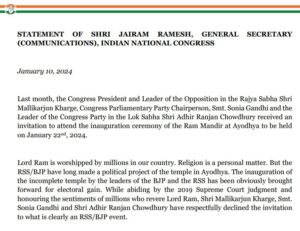
अयोध्या में बन रहे भव्य राम मंदिर की प्राण प्रतिष्ठा समारोह में कांग्रेस की पूर्व अध्यक्ष सोनिया गांधी, मौजूदा अध्यक्ष मल्लिकार्जुन खरगे और लोकसभा सांसद अधीर रंजन चौधरी शामिल नहीं होंगे।
कांग्रेस के महासचिव (संचार) जयराम रमेश ने इसकी जानकारी दी है।
Election
महाराष्ट्र के मुख्यमंत्री बने रहेंगे एकनाथ शिंदे, स्पीकर ने खारिज की विधायकों की अयोग्यता की याचिका
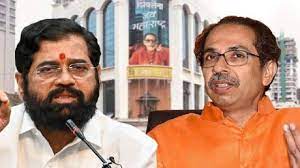
महाराष्ट्र के मुख्यमंत्री बने रहेंगे एकनाथ शिंदे, स्पीकर ने खारिज की विधायकों की अयोग्यता की याचिका
महाराष्ट्र की राजनीति के लिए आज का दिन बड़ा अहम रहा। महाराष्ट्र विधानसभा के अध्यक्ष राहुल नार्वेकर ने मुख्यमंत्री एकनाथ शिंदे सहित 16 विधायकों की अयोग्यता मामले में 1200 पन्नों का फैसला सुनाया। विधानसभा स्पीकर ने अपने फैसले में शिंदे गुट को ही असली शिवसेना माना। साथ ही 16 विधायकों को अयोग्य करार देने की मांग वाली याचिका भी खारिज कर दी। फैसले के अहम बिंदुओं को पढ़ते हुए उन्होंने कहा कि जब पार्टी में बंटवारा हुआ था, तब शिंदे गुट के पास 37 विधायकों का समर्थन था। ऐसे में उनके नेतृत्व वाला गुट ही असली शिवसेना है। उन्होंने यह भी कहा कि चुनाव आयोग ने भी इसे मान्य करार दिया था।
-

 Featured7 years ago
Featured7 years agoक्रिकेट के भगवान सचिन तेंदुलकर धर्मशाला स्टेडियम में देंगे क्रिकेट का ज्ञान
-

 Featured7 years ago
Featured7 years agoजन्म कर्म च मे दिव्यमेवं यो वेत्ति तत्त्वतः । त्यक्त्वा देहं पुनर्जन्म नैति मामेति सोऽर्जुन ॥ ४.९ ॥श्रीमद् भगवद्गीता यथारूप 4.9
-

 Acident7 years ago
Acident7 years agoकानपुर के अस्पतालों का फिर दिखा घिनौना चेहरा इस बार सिंधी हॉस्पिटल में हुआ दर्दनाक हादसा
-

 CHANDIGARH7 years ago
CHANDIGARH7 years agoस्टेम सेल क्या है?स्टेम सेल ट्रीटमेंट बोनमैरो, अस्थिमज्जा, लीवर, कैंसर…. बीमारियों के इलाज
-
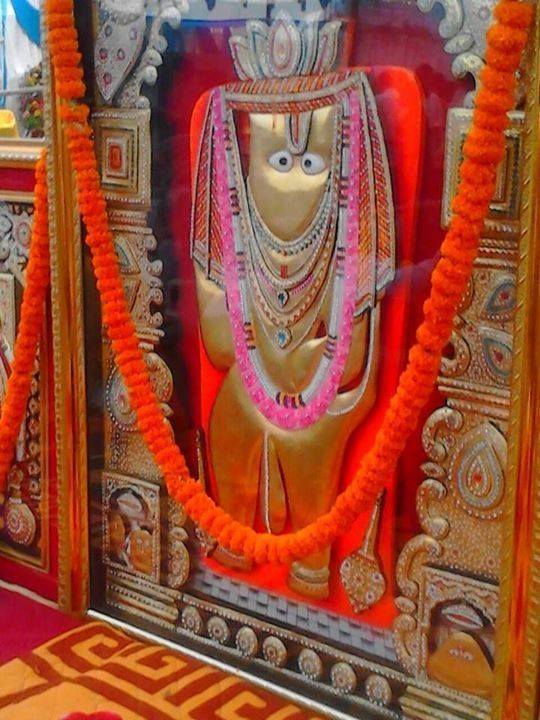
 NEWS7 years ago
NEWS7 years agoश्री मेहंदीपुर बालाजी महाराज जी
-
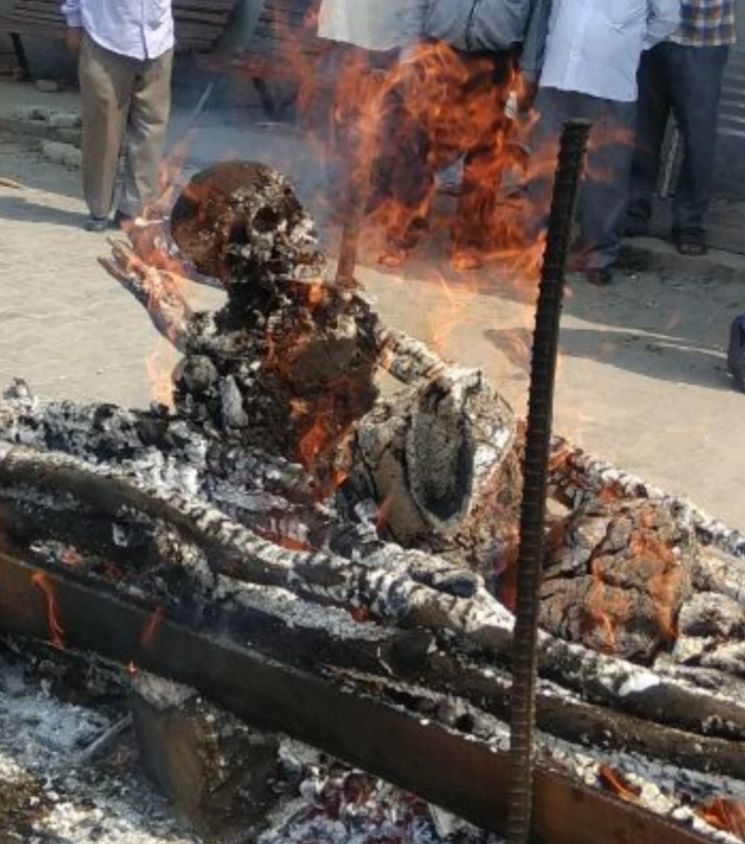
 Featured7 years ago
Featured7 years agoश्मशान में चल उठी अधजलि लाश, मचा हड़कंप
-
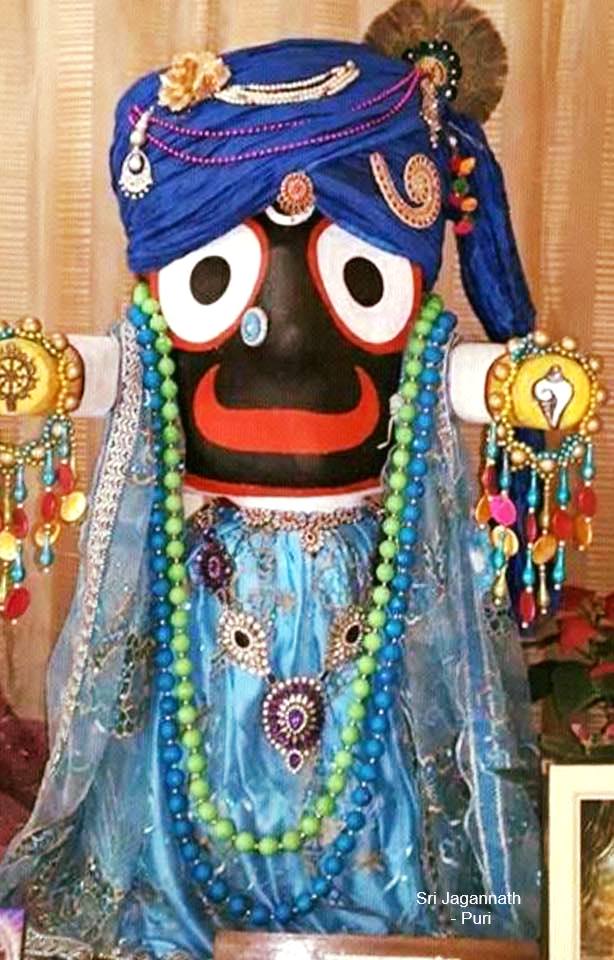
 Featured7 years ago
Featured7 years agoJai Mahaprabhu ⚫❗ Sri Jagannath – Puri
-
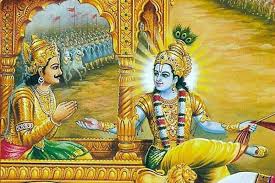
 Gallery6 years ago
Gallery6 years agoयो मां पश्यति सर्वत्र सर्वं च मयि पश्यति । तस्याहं न प्रणश्यामि स च मे न प्रणश्यति

